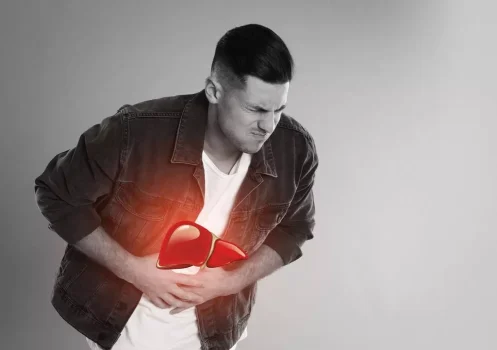
This is of particular concern when you’re taking certain medications that also depress the brain’s function. Know the danger signals, and if you suspect that someone has an alcohol overdose, call 911 for help immediately. Do not wait for the person to have all the symptoms, and be aware that a person who has passed out can die. Don’t play doctor—cold showers, hot coffee, and walking do not reverse the effects of alcohol overdose and could actually make things worse. A person’s breathing and blood circulation will be extremely slowed.
Deterrence and Patient Education

Showing signs of alcohol intoxication and taking other substances, such as drugs or medication, in addition to the alcohol. Too much alcohol affects your speech, muscle coordination and vital centers of your brain. A heavy drinking binge may even cause a life-threatening coma or death.
Moderate and Excessive Drinking Defined
- This is usually in patients who are chronic alcohol abusers or patients already affected by alcoholic cirrhosis.
- Alcohol use and taking opioids or sedative hypnotics, such as sleep and anti-anxiety medications, can increase your risk of an overdose.
- Alcohol in the form of ethanol, also called ethyl alcohol, is in alcoholic beverages.
- If anyone shows signs of severe intoxication, contact emergency services immediately.
This stage can be very dangerous and even fatal if a person chokes on their vomit or becomes critically injured. Ethanol interferes with the balance of neurotransmitters in the brain by increasing the amount of gamma-aminobutyric acid. This amino acid, often called https://ecosoberhouse.com/ GABA, reduces central nervous system activity. In every U.S. state, it is illegal to drive with a BAC of over 0.08%. In the Gaudiya Vaishnavism branch of Hinduism, one of the four regulative principles forbids the taking of intoxicants, including alcohol.
How Many Days Does it Take to Recover from Alcohol Overdose?
- During the recovery period, a person may experience a depressed mood and appetite, discomfort, and memory problems.
- Alcohol poisoning happens when there’s too much alcohol in your blood, causing parts of your brain to shut down.
- In the Church of Jesus Christ of Latter-day Saints, alcohol consumption is forbidden,[52] and teetotalism has become a distinguishing feature of its members.
- Binge drinking is defined as drinking that brings blood alcohol concentration (BAC) to 0.08% or higher.
- Breath and blood tests measure the levels of alcohol and other substances in the body.
- It affects multiple organ systems in both the acute and chronic phases.
These brain changes contribute to the compulsive nature of addiction, making it difficult to abstain from alcohol. In people assigned male at birth, alcohol consumption can decrease testosterone production and sperm quality. In people assigned female at birth, alcohol use can interfere with regular ovulation and menstrual cycles and make it difficult to get pregnant.
Using alcohol with opioid pain relievers, such as oxycodone and morphine, or illicit opioids, such as heroin, is also a very dangerous combination. Like alcohol, these drugs suppress areas in the brain that control vital functions such as breathing. Ingesting alcohol and other drugs together intensifies their individual effects and could stages of alcohol intoxication produce an overdose with even moderate amounts of alcohol. Alcohol use and taking opioids or sedative hypnotics, such as sleep and anti-anxiety medications, can increase your risk of an overdose. Examples of these medications include sleep aids, such as zolpidem and eszopiclone, and benzodiazepines, such as diazepam and alprazolam.
BAC Facts: Impairment Starts at the First Drink

Treatment for alcohol poisoning includes observing vital signs, administering oxygen, and providing IV fluids. In some cases, a person may have their stomach pumped to remove alcohol before it can be absorbed or they may be given activated charcoal to minimize further alcohol absorption. Alcohol intoxication is usually treated with support and care as the body processes alcohol. In many cases, symptoms of intoxication will gradually decrease as alcohol is metabolized and eliminated from a person’s system.

Alcohol is a legal and yet detrimental psychoactive substance, capable of establishing addiction and impacting the physical, mental, social, and economic health of people. Alcohol can also play a role in the pathogenesis of diabetes mellitus, cardiomyopathy and hemorrhagic strokes. When drunk during pregnancy it is proved to be responsible for serious damage to fetuses causing a wide range of pathological conditions from miscarriage to Fetal Alcoholic Spectrum Disorder (FASD). Although, it can lead to more serious conditions like impaired speaking, impaired coordination, unstable gait, nystagmus, stupor, or coma. Respiratory depression and death could also happen in such cases.
This is also found in mouthwashes, some medicines, and household products. Poisoning happens when you drink too much ethyl alcohol in a short space of time. Other kinds of alcohol that you might have around the house, such as isopropyl alcohol (rubbing alcohol) and methanol (wood alcohol), are toxic in a different way.
Alcohol Toxicity
This leads to rapid increases in BAC and significantly impairs brain and other bodily functions. While casual to moderate drinking may be a part of life for some, excessive or chronic alcohol consumption can significantly impact your body and long-term health. However, death is not the only consequence of excessive alcohol use.
